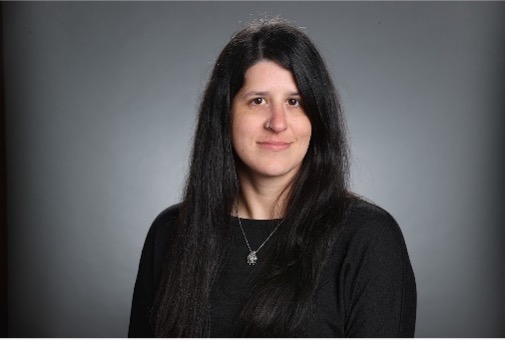Assistive Robots for People with Impairments, Dr. Maria Kyrarini, SCU
Santa Clara Valley IEEE Robotics and Automation Society Chapter

Assistive robotic manipulators have the potential to support individuals with impairments to regain some of their independence in performing Activities of Daily Living. For individuals with impairments, interaction with assistive robotic manipulators is a very challenging task. In this talk, I will present several interactive approaches to enable people with impairments to collaborate with assistive robots. The first approach focuses on enabling people with tetraplegia to teach the robot how to assist them with drinking. The second approach focuses on an autonomous multi-sensory robotic system, which assists with straw-less drinking. The third approach focuses on robots can learn from human speech. Experimental results for the three approaches will be presented. Furthermore, I will conclude the talk with a brief discussion of future research challenges.
Date and Time
Location
Hosts
Registration
-
 Add Event to Calendar
Add Event to Calendar
Loading virtual attendance info...
- Santa Clara University
- 500 El Camino Real
- Santa Clara, California
- United States
- Building: SCDI 3301
Speakers
 Dr. Maria Kyrarini
Dr. Maria Kyrarini
Assistive Robots for People with Impairments
Assistive robotic manipulators have the potential to support individuals with impairments to regain some of their independence in performing Activities of Daily Living. For individuals with impairments, interaction with assistive robotic manipulators is a very challenging task. In this talk, I will present several interactive approaches to enable people with impairments to collaborate with assistive robots. The first approach focuses on enabling people with tetraplegia to teach the robot how to assist them with drinking. The second approach focuses on an autonomous multi-sensory robotic system, which assists with straw-less drinking. The third approach focuses on robots can learn from human speech. Experimental results for the three approaches will be presented. Furthermore, I will conclude the talk with a brief discussion of future research challenges.
Biography:
Maria Kyrarini is an Assistant Professor of Electrical and Computer Engineering and David Packard Jr. Faculty Fellow at Santa Clara University (SCU). She also leads the Human-Machine Interaction & Innovation (HMI2) research group which has been supported by federal (NSF) and SCU internal grants. Prior to SCU, she was a postdoctoral research fellow at the University of Texas at Arlington and the assistant director of the Heracleia Human-Centered Computing Lab. In 2019, Maria received her Ph.D. in Electrical Engineering from the University of Bremen under the supervision of Professor Dr.-Eng. Axel Gräser. The title of her Ph.D. thesis is: "Robot learning from human demonstrations for human-robot synergy". Before that, she received her M.Eng. degree in Electrical and Computer Engineering and her M.Sc. degree in Automation Systems both from the National Technical University of Athens (NTUA) in 2012 and 2014, respectively. Her primary research interests are in the fields of Robot Learning from Human Demonstrations, Human-Robot Interaction, and Assistive Robotics with a special focus on enhancing Human Performance.
Email:
Address:Santa Clara University, , Santa Clara, California, United States
Agenda
6:30 PM Introduction and RAS Chapter News
6:40 PM Presentation
7:30 PM Q&A
8:00 PM End

